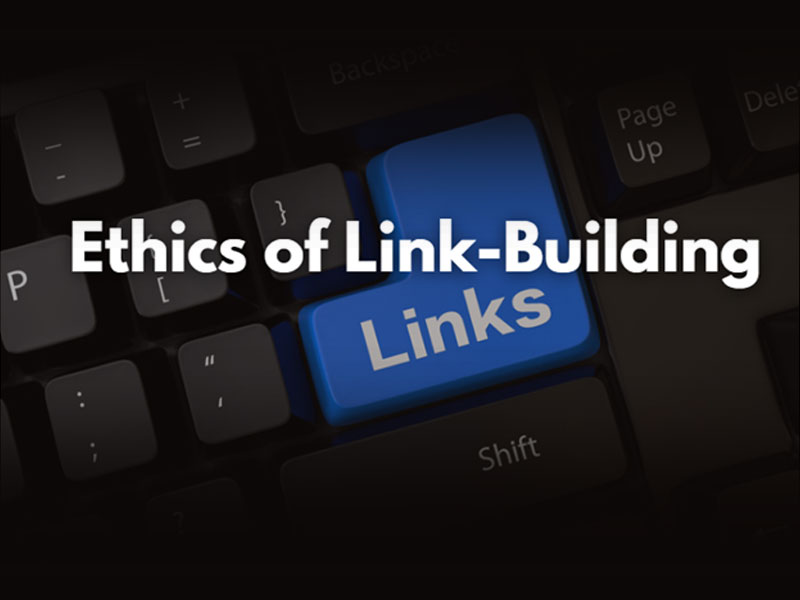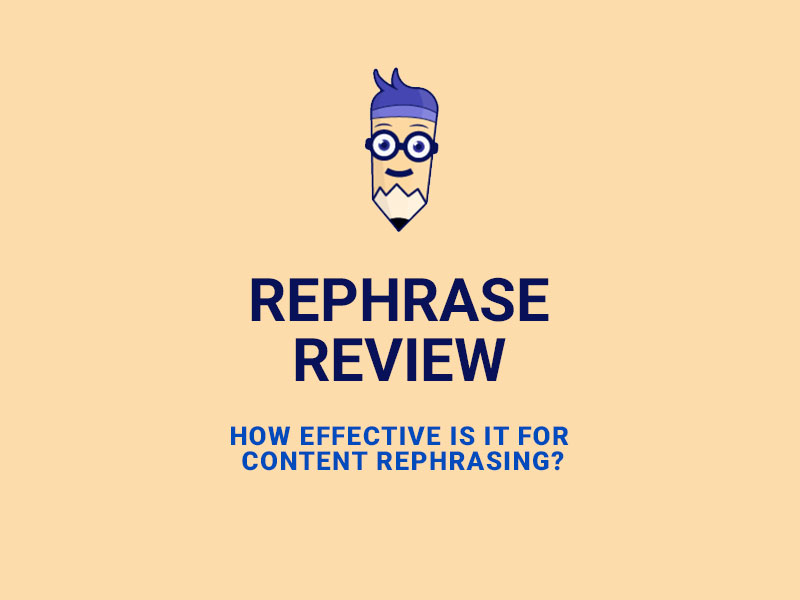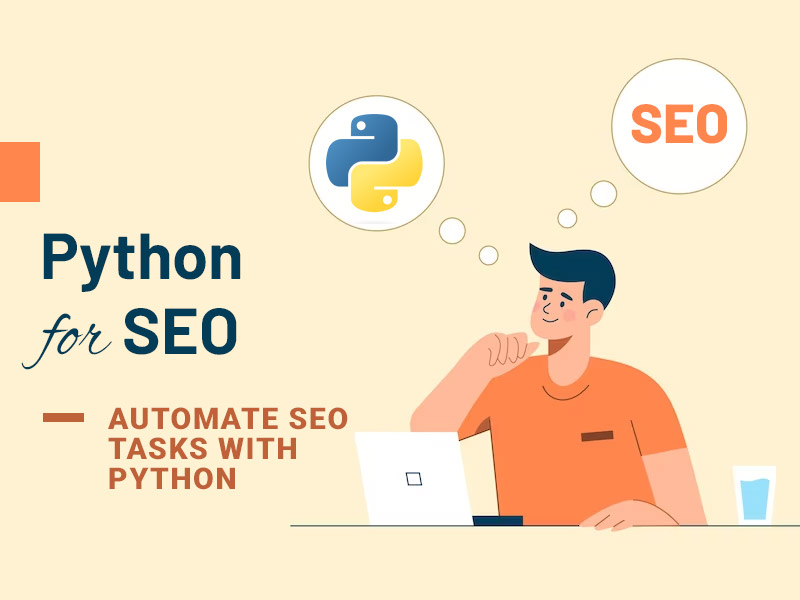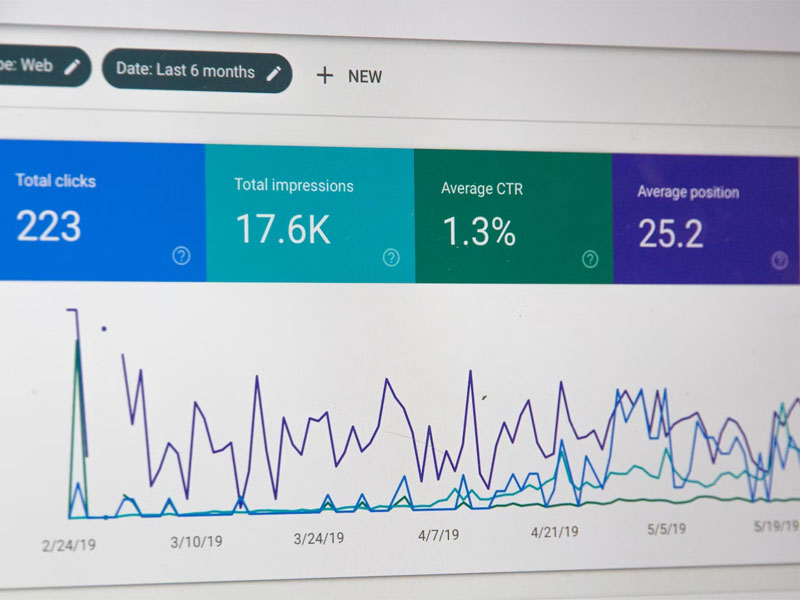When it comes to the art of SEO, link-building stands out as a cornerstone of enhancing a website’s visibility. But not all link-building is created equal; there’s a fine line between what’s considered ethical and what’s not. Ethics of link-building strategies are not just about playing by the rules; they are about adding genuine value to the Internet.
Defining Ethical Link-Building
What is Ethical Link-Building?
In the simplest terms, ethical link-building refers to the practice of obtaining high-quality backlinks in a manner that adheres to search engine guidelines and fosters a positive user experience. It’s the white-hat path that champions quality over quantity and integrity over quick wins. By focusing on ethical link-building strategies, you build not only a robust SEO foundation but also a reputable brand image.
The Pillars of Ethical Link-Building
The essence of ethical link-building lies in three pillars: transparency, value, and relevance. Transparency is about being open regarding how links are acquired. Value comes from providing content that’s genuinely useful to users, and relevance ties backlinks to your content’s context, ensuring they contribute meaningfully to the topic at hand.
These three pillars work together to build an ethical foundation for link-building. Transparency and value gain user trust, while relevance ensures the context makes sense. Violating any of these pillars compromises ethics. For example, buying links without transparency, stuffing keywords without value, or placing links in irrelevant contexts. A thoughtful, integrated approach is needed to incorporate all three pillars into link-building strategies.
Ethical Strategies for Link Acquisition
Moving into the strategies, ethical link-building is inherently content-driven. It’s about crafting stellar content that people want to link to and then reaching out to relevant platforms with personalized, value-focused pitches. It’s a slow burn, sure, but it leads to organic link development that stands the test of time and algorithm updates.
Some specific ethical tactics include:
- Creating insightful, useful content like tutorials, research reports, and expert guides that naturally gain links.
- Guest posting on reputable, relevant sites by providing unique value and perspective for their audience.
- Building relationships with influencers and earning links through collaborative projects, interviews, or guest contributions.
- Promoting great content through social media to spark organic interest.
- Pitching niche directories or roundups with customized emails that are non-spammy.
- Conducting outreach for backlinks to industry experts and brand mentions after establishing rapport.
The key is to focus on value, relevance, and building genuine connections. Rinse and repeat with patience.
Unethical Link-Building Practices
On the flip side, unethical practices are the siren calls of SEO—tempting but treacherous. These include any schemes that manipulate link profiles, such as link farms or buying links. Such practices may offer a quick boost but at the cost of potential penalties and a tarnished reputation.
To keep your link-building above board, avoid tactics like excessive link exchanges, low-quality guest posts, manipulated anchor text, and paid links from advertorials. Instead, focus on organic earned links from high-quality sites relevant to your industry. Value-added content and genuine contributor relationships are the foundation of white-hat link-building.
Monitoring and Maintaining Ethical Standards
Keeping your link-building ethical is akin to tending a garden; it requires regular care and attention. Tools like backlink audit tools and webmaster resources are your best friends here. By conducting regular link profile audits, you can identify and disavow any questionable backlinks that might have crept into your garden. This proactive approach not only keeps your profile clean but also signals to search engines that you are committed to playing by the rules.
It’s critical to establish a systematic process for auditing and maintaining your backlink profile. Set reminders to review links on a regular schedule, such as quarterly or biannually. When reviewing, sort by new links first to quickly identify any potentially problematic ones. Have clear guidelines for assessing link quality and risk levels. Document all reviews for tracking over time.
Keeping Your Link-Building Ethical
But how frequently should you conduct these audits? Well, think of it like a dental check-up—it’s best to do it regularly and certainly if something feels off. If you’ve noticed a sudden drop in traffic or rankings, it’s definitely time to take a look under the hood.
In addition to regular audits, it’s important to establish processes and guidelines for link-building within your organization. Make sure all teams involved understand best practices the risks of unethical linking, and have access to the right tools to vet links and prospects. Ongoing education and open communication are key.
You may also consider setting up a link quality testing process. Spot-check samples of new links built to ensure they meet guidelines before they enter your profile. Continue monitoring authority/trust metrics of referring domains as well, using tools like Moz’s Spam Score.
The Consequences of Unethical Link-Building
Let’s talk about the elephant in the room—the consequences of not adhering to ethical link-building practices. The risks range from losing ranking positions to getting a Google penalty. These are not just slaps on the wrist; they can significantly impact your business, leading to loss of credibility, traffic, and, ultimately, revenue.
Engaging in unethical link-building tactics like buying links or participating in link networks can carry severe penalties from Google. A sudden manual action against your site can lead to catastrophic drops in rankings and traffic overnight. Recovery can take months, if not longer.
Understanding the Risks and Consequences
For those who have suffered from these penalties, the road to recovery can be long. It involves a thorough cleanup of your backlink profile and a recommitment to ethical SEO strategies. But take heart—recovery is possible, and it’s a chance to rebuild better and stronger than before.
The impacts of unethical linking are real and far-reaching. Even minor infractions can prompt algorithmic penalties and sandboxes that silently damage rankings. Large-scale violations often result in highly visible manual actions, leaving you to explain sudden ranking drops to bosses and clients.
Beyond rankings, poor link practices undermine trust signals and credibility. Audiences, customers, and even industry peers may question the integrity of your brand and content. Rebuilding a reputation can be an uphill battle.
Financial impacts are also unavoidable. Traffic and revenue loss from lower rankings or penalties can be significant. Cleanup efforts demand time and resources as well. It’s always cheaper and easier to do things right the first time.
While penalties aren’t pleasant, view them as a chance to start fresh. Conduct a full forensic link audit, document lessons learned, and implement processes to ensure it doesn’t occur again. Ethical foundations will lead to sustainable growth.
The Future of Ethical Link-Building
As we look to the horizon, the future of link-building remains firmly rooted in ethics. Search engines are becoming more sophisticated, and they’re getting better at distinguishing between genuine authority and artificial manipulation.
Looking to the future, ethical link-building practices will be more important than ever. As search engines evolve, staying aligned with their core objectives of providing quality content and experiences to users must guide our strategies.
Ethical Link-Building in the Evolving SEO Landscape
Adaptive link-building strategies that anticipate and evolve with algorithm changes are the way forward. This means staying educated on SEO trends, understanding the nuances of search engine algorithms, and, most importantly, never losing sight of the fact that, at the end of the day, it’s all about providing value to the user.
In this complex and shifting landscape, ethical link-builders must remain vigilant, nimble, and open to continuous learning. Adapting strategies while keeping users front of mind will be key to sustaining long-term SEO success.
Sustainable SEO: Building for Tomorrow
The key to sustainable SEO lies in a commitment to continuous learning and adaptation. As search engines evolve, so too must our strategies. This doesn’t mean chasing after every algorithmic shift. Instead, it’s about understanding the core objective of search engines—to provide the most relevant, high-quality content to users—and aligning your link-building practices with that goal.
Looking ahead with a commitment to ethics and quality will keep link-building efforts sustainable even as the SEO landscape transforms. The focus must remain on serving users by adapting to algorithm changes while staying true to overarching best practices.
Future-Proof Link-Building
Looking ahead, it’s not about tricks or hacks; it’s about building a robust foundation of quality content that earns links naturally. This includes creating compelling resources, engaging in community discussions, and being cited as a trustworthy authority in your niche. By focusing on these areas, you ensure that your link-building efforts are not only ethical but also resistant to the whims of algorithm changes.
To future-proof link-building, persistently focus on providing genuine value through content. Search engines will continue to favor quality, so building a solid foundation of authoritative resources now will serve ethical SEO for years to come.
Algorithm-Proof Ethics: Staying Ahead of the Curve
To stay ahead, keep a close eye on search engine updates and industry best practices. Participate in SEO forums, attend webinars, and immerse yourself in ongoing education. This proactive approach will not only inform your strategies but also position you as a thought leader in the ethical SEO space.
Remaining on the cutting edge of SEO through continuous education will be key to sustaining ethical link-building over the long haul. Making ethical practices central to your brand builds authority and trustworthiness even as algorithms evolve.
Conclusion
In conclusion, link-building remains a crucial part of SEO success, but it must be done ethically. Unethical practices like buying links or participating in link networks can lead to penalties, loss of rankings, and damage to your site’s credibility.
Regular audits of your backlink profile are key to maintaining ethical standards over time. Ongoing education on the latest SEO best practices will help future-proof your link-building efforts as search engines evolve. Adhering to the core objective of providing value to users through relevant, quality content will keep your link-building strategies aligned with search engine goals, even as algorithms change.







